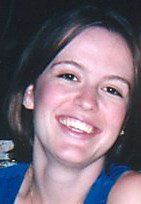Monday, November 27, 2006
The integration of knowledge and clinical practice (finally)
There's a fairly regular neuro teaching/training group that happens on Mondays, and was previously physios only until I gate-crashed when I started on the stroke unit. And today I brought Cecilia's OT student with me as well. Today's topic was assessment of dyspraxia, and we met a patient that one of the group's members is currently treating (she's an outpatient physio) and who had agreed to perform some functional tasks for the group. First of all, the sad news...this guy could really have benefitted from a stint on a specialised rehab stroke unit but unfortunately slipped through the cracks. He went from an acute admission to hospital (where he was indeed diagnosed with CVA) to being denied admission to our stroke unit (I have no idea what the neurologist who made that decision was thinking) to going to a generalised rehab unit where the staff was temporary and his treatment was inconsistent to being discharged home with his wife. Thankfully a referral was made to outpatient physio and she realised this was an urgent case and picked him up right away. The good news...we generated a lot of new ideas today as a result of our group session, which in the end was really more of a brainstorming session than a teaching on the assessment of dyspraxia. There are no formal assessments for dyspraxia, I think at least in part because it's so hard to tease it out... you must first eliminate any other possibilites including muscle weakness, motor problems, decreased sensation, etc. And after watching this guy stand up, sit down, walk, talk, and have wild resting tremors with his left hand, we were able to pick up on several things that the physio (through no fault of her own) had missed- she doesn't work on a stroke unit after all, and it's hard to keep your eye on everything when you're working solo with a patient. We decided that the dyspraxia he's experiencing now may very well be the manifestation of other problems rather than be a true dyspraxia. He will be getting a referral to an orthoptist because we suspect possible vision problems. He also seemed to be exhibiting a fair amount of inattention to his left side. I was able to suggest graded bilateral functional activities for both arms, with facilitation from the therapist to make sure the activity is successful (for example, washing hands with hand-over-hand from the therapist to control the tremors) because I suspected he's given up on that hand since it doesn't do what he wants it to do most of the time, and he never had intense input from a stroke rehab team to work on that hand. For the first time in a while, it felt like a synthesis of what I've soaked up since arriving on the stroke unit, with things that I learned at Tufts, such as the importance of a "Just Right Challenge" balanced with making sure the patient experiences success. And boy did it feel good to contribute!!! :)
Subscribe to:
Post Comments (Atom)



No comments:
Post a Comment